
(HBO) – Hoa Binh Lake is the largest artificial lake in Southeast Asia. It is 70km long and spreads across 17 communes in five districts and city. There are 47 large and small islands in the reservoir, including 11 limestone islands with an area of 116 hectares and 36 earth islands covering nearly 160 hectares. On August 1, 2016, the Prime Minister approved a master plan on developing Hoa Binh Lake into a national tourist site by 2020. By 2030, Hoa Binh Lake is expected to become the province’s biggest tourism centre and one of 12 key national tourist sites in the northern mountainous mid-land region.
Here are photos of Hoa Binh Lake
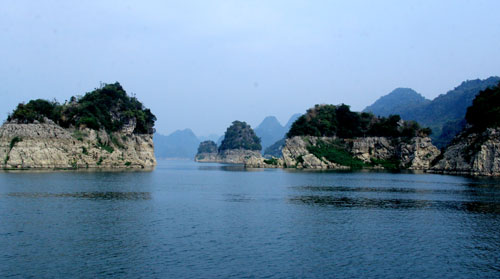
Immense Hoa
Binh Lake with its poetic and charming
landscapes is an ideal place for anyone who wants to explore untouched nature
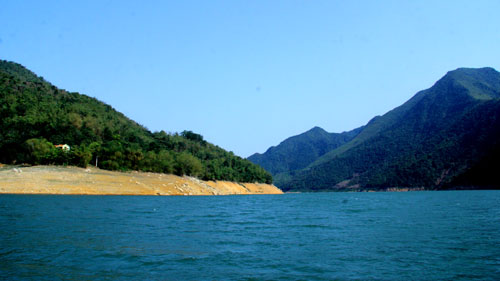
Water, forest, mountain, and
blue sky create endless beauty
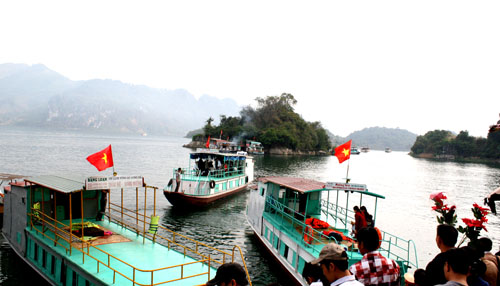
Thac Bo Temple, a popular
spiritual destination
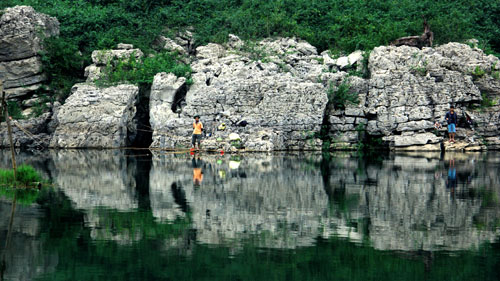
Fishing at Trung Hoa, Tan
Lac
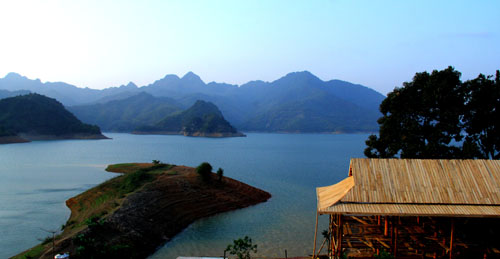
Sunset in Suoi Lon hamlet,
Tan Mai, Mai Chau
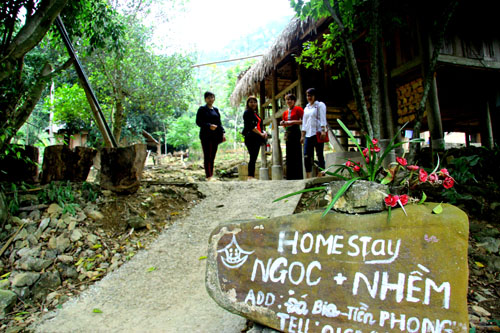
Visitors can explore culture,
nature, and people in homestay villages around the lake
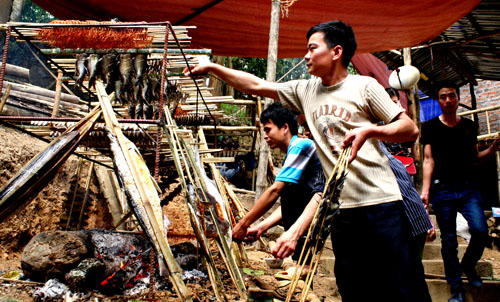
Song Da grilled fish
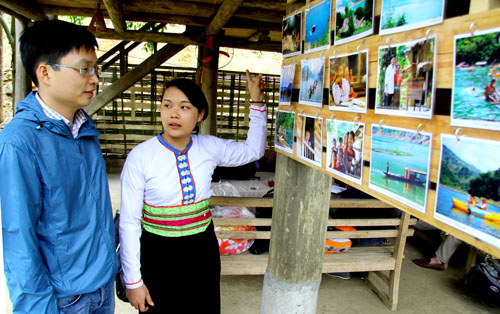
Visitors can enjoy local
dishes in small lakeside hamlets
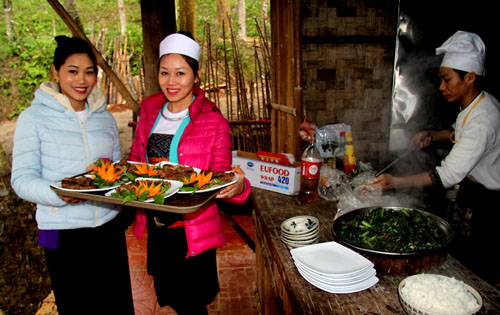
Learning about the culture
of Muong ethnic minority people
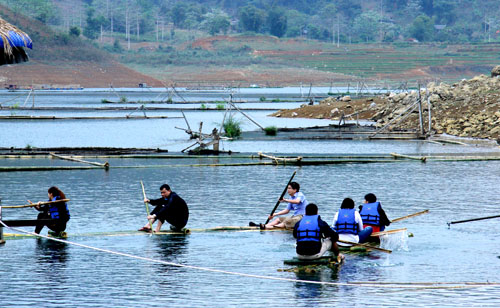
Boat riding is an
interesting experience for visitors.
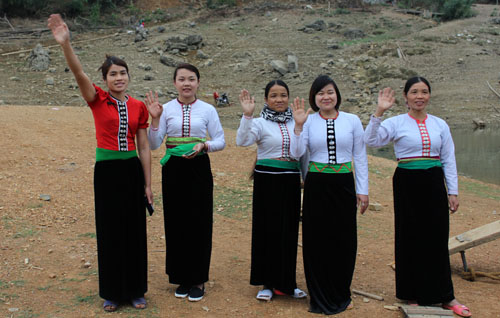
Friendly local people.
Le Chung
In the last historic days of April, blending with the joyful atmosphere of the whole country, on the streets of Hoa Binh City, flags, banners and slogans are brilliantly decorated to celebrate the 50th Anniversary of Southern Liberation and National Reunification. Here are the records from Hoa Binh newspaper’s reporters:
Nestled halfway up the mountains in Cao Son commune, Da Bac district, Sung village appears like a picture preserved intact through generations. With a history of over 300 years, the village is home to nearly 100 households of Dao Tien ethnic group – the people who still maintain their distinctive characteristics in housing architecture, clothing, customs and traditional crafts. The village is drawing increasing interest and exploration from both domestic and international tourists, as every visit becomes a cultural journey to experience the authenticity, friendliness, and hospitality of this highland region.
This Spring, more than 1,000 phoenix trees in Thang Hamlet, Thach Yen Commune (Cao Phong) have bloomed brilliantly, quickly spreading on social media. The picturesque beauty of the flower garden has attracted the participation of many people to admire and take photos.
This belief is both a guiding principle and a lifelong ambition for Sa Van Cam, a member of the Tay ethnic group in Da Bac district and a passionate advocate for the Tay culture. The native has devoted years to the revival, preservation, and teaching of the ancient Tay script.
Located just 25 km from Hoa Binh city and approximately 100km from Hanoi, with a journey of around 1 hour 45 minutes, Ngoi Hoa ecotourism site (PriorBay Resort) in Suoi Hoa commune, Tan Lac district, is a stunning peninsula retreat, and a standout destination within the Hoa Binh Reservoir tourism area. Officially opening in February this year, the resort captivates visitors with its distinctive vacation products and a range of exciting adventure experiences.
Over 1,500 women paraded in traditional ao dai (long dress) at Hoa Binh Square on March 5 to mark Ao Dai Week 2025 launched by the Vietnam Women's Union. Organised by the provincial Women’s Union in collaboration with the city’s chapter, the annual event features lively folk dance performances and a colorful parade that celebrated the beauty of Vietnam’s traditional dress and its rich cultural heritage.













